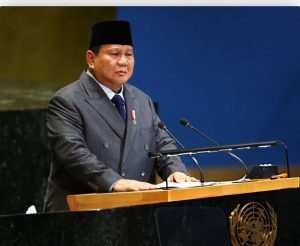
investors
’ trust. (Photo: m.bisnis)" width="300" height="199" /> Strong bond demand shows investors’ trust. (Photo: m.bisnis)Jakarta, 8 Dzulqa’dah 1435/3 September 2014 (MINA) – The government raised more funds than expected from a debt paper offering on Tuesday, as investors gave a vote of confidence to Southeast Asia’s largest economy.
The bond offering attracted bids of Rp 31 trillion (US$2.63 billion), more than three times the indicative target set by the government. Initially planning to raise Rp 10 trillion, the Finance Ministry decided to upsize the allocation after selling Rp 15 trillion in bonds due to the high demand.
“This is amazing news, as initially there were worries investors might be lukewarm,” Finance Minister Chatib Basri said on Tuesday in Jakarta after the announcement. “This shows that investors still have faith in Indonesia,” The Jakarta Post quoted by Mi’raj Islamic News Agency (MINA) as reporting.
The incoming bids of Rp 31 trillion that the Finance Ministry recorded were the highest since March, official data show.
Also Read: Saudi Arabia Wins Bid to Host World Expo 2030
Indonesia’s economy slowed by 5.1 percent in the second quarter this year from a year earlier, its lowest since 2009, troubled by weak exports that have also pressured the country’s current account deficit.
But hopes abound that the incoming administration of president-elect Joko “Jokowi” Widodo will prioritize key issues that have disrupted the country’s potential, such as ballooning fuel subsidies and poor infrastructure development.
“We increase allocation to rupiah bonds with the prospect of fiscal reform, benign inflation and a high level of yields,” commented Jennifer Kusuma, a fixed-income strategist with BNP Paribas in Singapore. France-based BNP Paribas has adopted an “overweight” stance on rupiah bonds.
“Benign global risk backdrop and low US treasury yields ensure that rupiah bonds will continue to offer an attractive pick-up,” she added.
Also Read: 148 Products from Indonesia Promoted at Sarawat Superstore Jeddah
Indonesia’s high-yielding bonds are attracting major European fund managers from BNP Paribas to UK-based Ashmore Group Plc., which has described real interest rates in Indonesia as among the highest in the world.
At Tuesday’s auction, the benchmark 10-year bonds were the most in-demand among investors, with their bid-to-cover ratio reaching 2.87, the highest among six bonds offered by the government.
The weighted average yields for the 10-year notes stood at 8.21 percent, slightly lower compared with the 8.29 percent at the last government bonds auction on Aug. 19. In bonds, yields have an opposite correlation with prices, with lower yields indicating higher pricing among investors.
Other types of bonds sold by the government include the one-month and three-month treasury bills (T-bills), as well as five-year, 15-year and 30-year notes.
Also Read: Packaging Industry Supports Halal Ecosystem
“In the secondary return, we’ve seen some excessive correction in prices of long-term bonds due to our high current-account deficit, so investors are now making a comeback,” Adra Wijasena, a fixed-income analyst with Mega Capital Indonesia in Jakarta, said on Tuesday.
- Incoming bids top Rp 31t vs an expected Rp 10t
- Govt sells Rp 15t
- Investors attracted by high yield, prospect of fiscal reform
He explained that many investors opted to boost their holdings of rupiah bonds due to the subsiding political risks in Indonesia, in addition to positive economic data, as the latest figures on the trade balance and inflation were generally seen as positive.
The Central Statistics Agency (BPS) announced this week that Indonesia posted a trade surplus of $123 million in July, a surprising announcement as the market was expecting a deficit. Meanwhile, inflation fell to a 19-month low of 3.99 percent in August.
Among fund managers, Indonesia has seen declining investment risk recently, with its five-year credit default swaps (CDS) sliding 27 basis points this quarter to 133 bps, Bloomberg reported on Tuesday, quoting data provider CMA. This is a significant decline compared with 226 bps in January.
Also Read: Indonesia-Japan Agree on Energy Transition Cooperation
In the secondary market, the yield for the benchmark 10-year rupiah bonds have fallen 24 basis points, or 0.24 percent, this year to touch 8.21 percent on Tuesday, according to data from the Asian Bonds Online.(T/P009/P3)
Mi’raj Islamic News Agency (MINA)
Also Read: Dubai Expo 2020 Holds Special Event for Palestine

































 Mina Indonesia
Mina Indonesia Mina Arabic
Mina Arabic